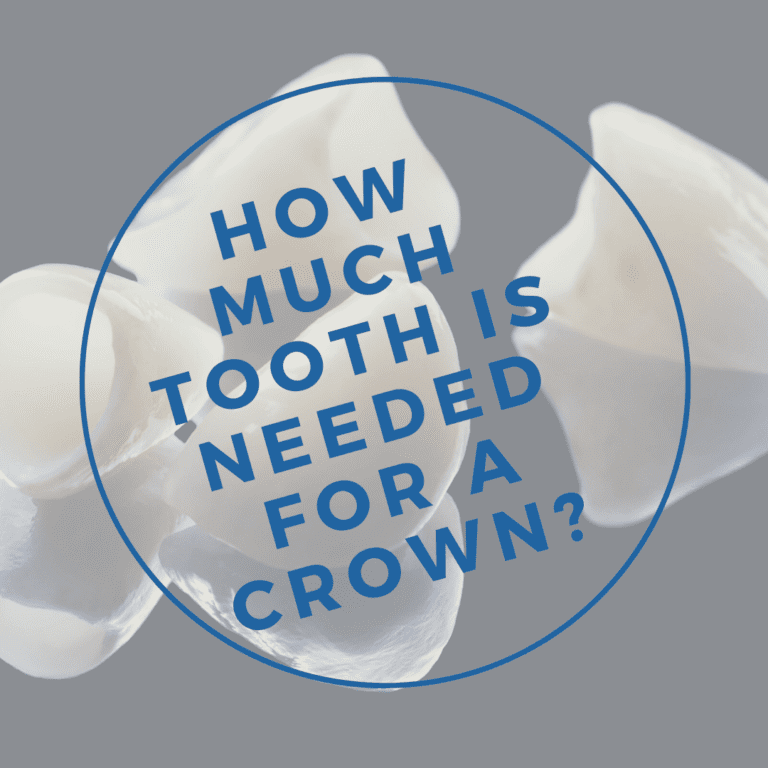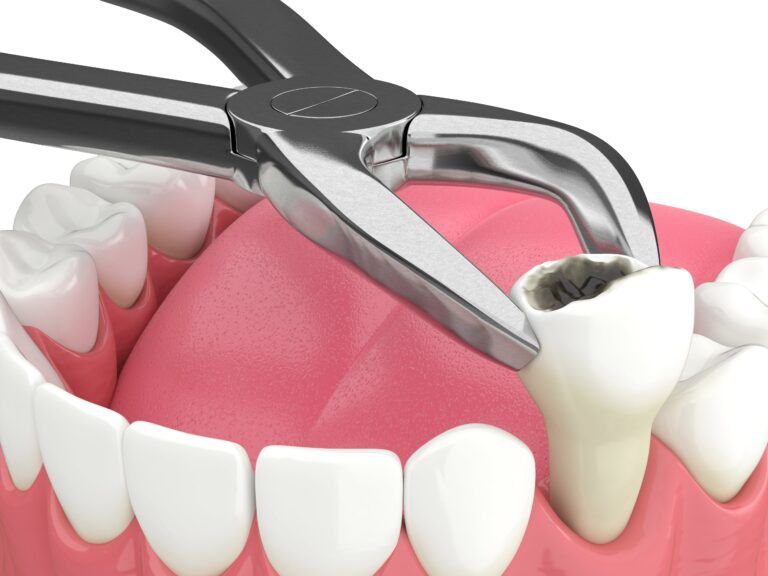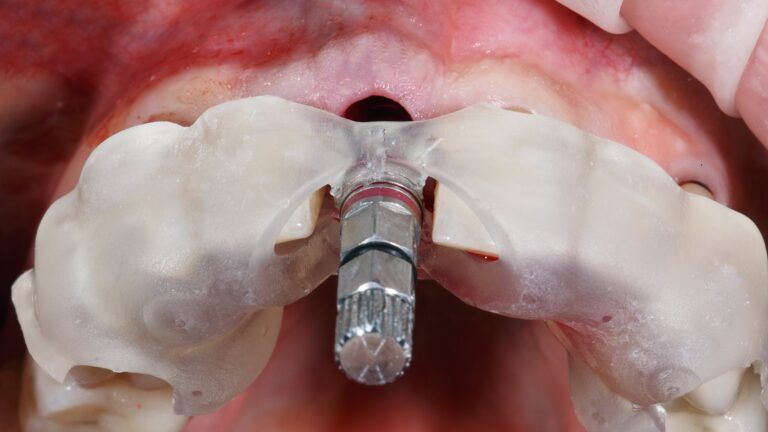Dental crowns are used to restore a tooth or teeth that have been damaged by decay, injury, or a medical condition. They can be made of gold alloys, porcelain and other dental materials. Dental crowns are placed over the entire visible portion of the tooth (called the “crown”). When you go in for a dental crown, your dentist will take a look at the tooth that needs to be crowned and determine whether enough of the natural tooth structure is present. Sometimes there is not enough tooth left to place a crown. In this blog post, we will discuss how much tooth is needed to place a dental crown and what to do when there is not enough tooth for a crown.
Understanding How Dental Crowns are Placed
Before discussing how much tooth is needed, we will need to understand how dental crowns are placed. A dental crown is placed over the entire visible portion of a tooth. This helps to strengthen and protect it from further damage. To ensure the crown can fit over your tooth without affecting your bite, however, the affected tooth will first need to be reduced in size.

The amount of natural tooth structure removed will depend upon the extent of the damage/decay, as well as the thickness of the dental material being used to fabricate the crown. Because dental crowns require the removal of natural tooth structure, they are generally only recommended when a significant portion of the natural tooth structure has already been affected by damage or decay. This minimizes the amount of healthy tissue removed.
In some cases, dental crowns can also be placed after performing root canal therapy. This is the case when the decay is so severe that it has reached the innermost layer of the tooth, known as the pulp. This leads to an infection, known as pulpitis, that can only be treated by physically removing the infected tissue from the inside of the tooth. Once all the pulp tissue has been removed, the inside of the tooth is then filled with a rubber-like material known as gutta percha.
So, How Much Tooth is Needed for a Dental Crown?
Now that we know dental crowns are designed to fit over an existing tooth, we can start to understand how much tooth is needed for a dental crown. In most cases, only a minimum of about 1/4 of the natural tooth structure needs to be present to place a dental crown. Obviously, the more natural, healthy tissue, the better, but dental crowns are designed to restore significantly damaged teeth.
What Happens When There is Not Enough Tooth for a Crown?
Nevertheless, there are still cases where there may simply not be enough of the natural tooth left to place a dental crown. If there is not enough natural tooth structure left, then it will not be possible to place a crown. If there is not enough tooth for a crown, then your dentist will discuss the treatment options available to you. These may include:
Building Up the Outside

If you do not have enough tooth structure to support a dental crown, one of the first things that can be done is to build up the outer structure using composite resin. This gives the dental crown more structure so that it can be supported properly. Composite resin is a tooth-colored dental material that bonds directly to the enamel. It is initially applied as a soft putty, then it is hardened in place using a special curing light. While composite resin alone is not ideal for fabricating large restorations, it can be quite effective when used in coordination with a dental crown.
Building Up the Inside
In cases where a root canal was performed, additional internal support may be needed to ensure the remaining tooth structure can support a dental crown. In these cases, your dentist may use a post-and-core foundation. This technique uses one or more small posts that are designed to fit inside the pulp chamber of the tooth. The post will be cemented in place before fabricating your dental crown. The combination of the gutta percha and the posts strengthens the tooth from the inside out and allows for a dental crown to be placed.
Dental Implants
If there simply isn’t enough natural tooth left at all and neither of these solutions can provide adequate support, then your best option may be to consider extracting what is left of the tooth and having it replaced with a dental implant. A dental implant is a titanium post that is surgically placed into the jawbone. The post then serves as an artificial root for a replacement tooth (crown). While dental implants are not right for everyone, they may be the best solution when there is not enough tooth structure left for other treatments.
If you are in need of a dental crown, it is important to have an evaluation done by your dentist as soon as possible. He will be able to determine how much tooth structure is left, whether or not a crown can be placed, and what your treatment options are. Keep in mind that if you wait too long to seek treatment, then the tooth may die and you will likely need an extraction instead of just a dental crown. If this happens, then your only other option will be to get a dental implant. It is much easier and more convenient to have your tooth crowned now, while it can still be saved.
In Conclusion
Your dentist will work with you to determine the best treatment option for your specific case. In many cases, dental crowns can still be placed on teeth that are significantly damaged or decayed. If there is not enough tooth structure left, then it will be important that you discuss all your options with your dentist so you can make an informed decision on how to proceed with treatment. Each of these treatment options has its own set of pros and cons, so be sure to discuss them with your dentist before making a decision.

Irfan Atcha, DDS, DICOI, DADIA at New Teeth Chicago Dental in Chicago, Illinois is a board-certified general dentist and a nationally recognized expert in dental implants, cosmetic dentistry, and sedation dentistry. Dr. Atcha is now serving patients in Naples, Bonita Springs and SW FL area with All-on-4 implants, teeth-in-a-day, same day dental implants and the complex zygomatic dental implants for the no-jaw bone solution approach. To schedule a consultation please email Dr. Atcha at teethforyou@gmail.com.





